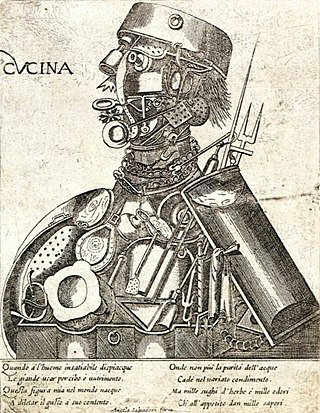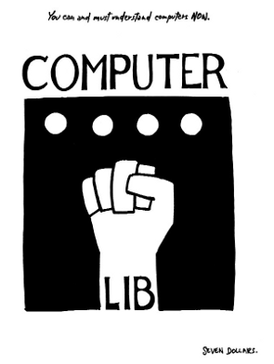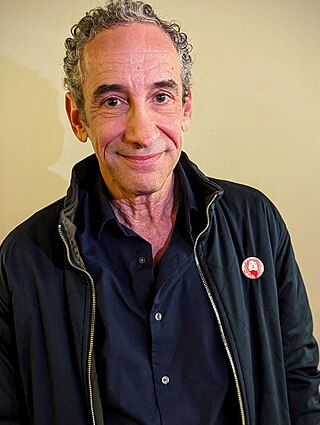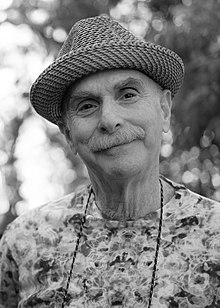A virtual community is a social work of individuals who connect through specific social media, potentially crossing geographical and political boundaries in order to pursue mutual interests or goals. Some of the most pervasive virtual communities are online communities operating under social networking services.
Technological convergence is the tendency for technologies that were originally unrelated to become more closely integrated and even unified as they develop and advance. For example, watches, telephones, television, computers, and social media platforms began as separate and mostly unrelated technologies, but have converged in many ways into an interrelated telecommunication, media, and technology industry.
Media literacy is an expanded conceptualization of literacy that includes the ability to access and analyze media messages as well as create, reflect and take action, using the power of information and communication to make a difference in the world. Media literacy is not restricted to one medium and is understood as a set of competencies that are essential for work, life, and citizenship. Media literacy education is the process used to advance media literacy competencies, and it is intended to promote awareness of media influence and create an active stance towards both consuming and creating media. Media literacy education is part of the curriculum in the United States and some European Union countries, and an interdisciplinary global community of media scholars and educators engages in knowledge and scholarly and professional journals and national membership associations.

A smart mob is a group whose coordination and communication abilities have been empowered by digital communication technologies. Smart mobs are particularly known for their ability to mobilize quickly.

The Whole Earth Catalog (WEC) was an American counterculture magazine and product catalog published by Stewart Brand several times a year between 1968 and 1972, and occasionally thereafter, until 1998.

Joichi "Joi" Ito is a Japanese entrepreneur and venture capitalist. He is the President of Chiba Institute of Technology. He is a former director of the MIT Media Lab, former professor of the practice of media arts and sciences at MIT, and a former visiting professor of practice at Harvard Law School. Ito has received recognition for his role as an entrepreneur focused on Internet and technology companies and has founded, among other companies, PSINet Japan, Digital Garage, and Infoseek Japan. Ito is general partner of Neoteny Labs, and former board member of Creative Commons, The Electronic Privacy Information Center (EPIC), The Internet Corporation for Assigned Names and Numbers (ICANN), John S. and James L. Knight Foundation, The New York Times Company, John D. and Catherine T. MacArthur Foundation, The Mozilla Foundation, The Open Source Initiative, and Sony Corporation. Ito wrote a monthly column in the Ideas section of Wired.
Davey Winder, previously known as "Wavey Davey" or "dwindera" but now settled as "happygeek", is a United Kingdom IT pundit who has worked as a consultant, writer and journalist. He was the 'IT Security Journalist of the Year (UK)' three times, in 2006, 2008 and 2010.
Tools for Thought: The History and Future of Mind-Expanding Technology is a work of "retrospective futurism" in which Smart Mobs author Howard Rheingold looked at the history of computing and then attempted to predict what the networked world might look like in the mid-1990s. The book covers the groundbreaking work of thinkers like Alan Turing, John von Neumann, and J.C.R. Licklider, as well as Xerox PARC, Apple Computer, and Microsoft. Rheingold wrote that the impetus behind Tools for Thought was to understand where "mind-amplifying technology" was going by understanding where it came from.

Intelligence amplification (IA) refers to the effective use of information technology in augmenting human intelligence. The idea was first proposed in the 1950s and 1960s by cybernetics and early computer pioneers.

Computer Lib/Dream Machines is a 1974 book by Ted Nelson, printed as a two-front-cover paperback to indicate its "intertwingled" nature. Originally self-published by Nelson, it was republished with a foreword by Stewart Brand in 1987 by Microsoft Press.

Digital literacy is an individual's ability to find, evaluate, and communicate information using typing or digital media platforms. It is a combination of both technical and cognitive abilities in using information and communication technologies to create, evaluate, and share information.
Participatory media is communication media where the audience can play an active role in the process of collecting, reporting, analyzing and disseminating content. Citizen / participatory journalism, citizen media, empowerment journalism and democratic media are related principles.
Participatory culture, an opposing concept to consumer culture, is a culture in which private individuals do not act as consumers only, but also as contributors or producers (prosumers). The term is most often applied to the production or creation of some type of published media.
The term metamedia, coined by Alan Kay and Adele Goldberg, refers to new relationships between form and content in the development of new technologies and new media.
Lovegety was a proximity matchmaking device introduced in Feb. 1998 in Japan by Erfolg Co.,ltd., which allowed users to find potential dates that match their personal preferences in the vicinity. Over 1,300,000 of these units were sold in Japan at an approximate price of $21.

Peter Enrique Kollock was an American sociologist and an associate professor and vice chair in the department of sociology at the University of California, Los Angeles.

Douglas Mark Rushkoff is an American media theorist, writer, columnist, lecturer, graphic novelist, and documentarian. He is best known for his association with the early cyberpunk culture and his advocacy of open-source solutions to social problems.

Clive Thompson is a Canadian freelance journalist, blogger, and science and technology writer.

The Institute for the Future (IFTF) is a Palo Alto, California, US–based not-for-profit think tank. It was established, in 1968, as a spin-off from the RAND Corporation to help organizations plan for the long-term future, a subject known as futures studies.

Digital Media in education is measured by a person's ability to access, analyze, evaluate, and produce media content and communication in a variety of forms. These media may involve incorporating multiple digital softwares, devices, and platforms as a tool for learning. The use of digital media in education is growing rapidly in today's age, competing with books for the leading form of communication. This form of education is slowly combating the traditional forms of education that have been around for a long time. With the introduction of virtual education, there has been a need for more incorporation of new digital platforms in online classrooms.













